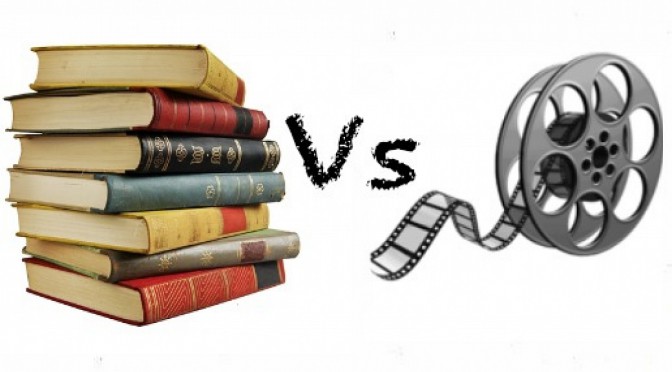Adaptations, they’re one of the things which provides the lifeblood of creative industries. Television series and movies are being made all the time as adaptations of preexisting properties, always have and always will. The same can be said the other way around with comic books or TV series being based on films. Hell, even video games get made based on popular movies in the right genres.

But there is a growing push-back to certain adaptations that is becoming stronger with time. This is to be expected, especially in an age where nostalgia properties are the biggest money makers in the world. After all, an entire generation that was raised during a small technological singularity has found itself not only as adults in a confusing time but with disposable income and not a lot of desire (or ability) to spend that income on another generation. You could practically make anything work so long as it’s based on something from the right genres or the right decade.
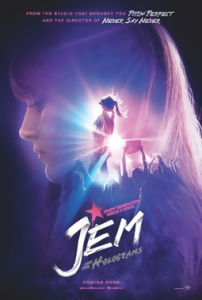
And yet, failures have happened, and critical reception is growing sharper not only from the actual professional critics (who aren’t even in the target audience, usually) but the fans themselves. Films like Batman v Superman have received mixed reviews, Age of Ultron did the same, and adaptations of YA novels have started to experience diminishing returns. Some could say that some of this is a result of adaptation decay, but there’s a more prevalent challenge ahead of adaptations…
Adaptation Fatigue
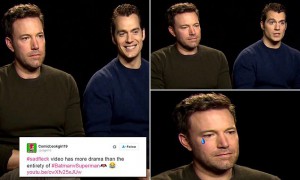
Something overlooked by many people as they form opinions of the media they look at is that a great many times you’re not judging a film, book, comic, or show on its own merits alone but on everything else you’ve seen as well. No media exists in a vacuum and that means your opinion of all media is based often in comparison. A poor film that’s the first of its kind will often be compared favorably against a better film that has similarities. Case in point, if you were to decide between Armageddon and Deep Impact, you’d find that Deep Impact is a better written film. However, despite this, since Armageddon was a bigger release and had more money put into advertising it – more people remember Armageddon in all its cheesy glory.
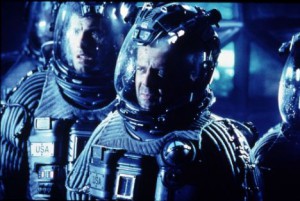
The same holds true for a lot of adaptations as well. This is particularly true of the Superhero genre as it has come to develop. At the time when Iron Man first hit the screens, starting the era we’re currently in where superhero movies outside of Batman could still be massive blockbusters, many pointed out its flaws and then overlooked them with “but we’re just so surprised”. Come around to the likes of IM2 and IM3 and we find the reviews slowly decline even though the same flaws that exist in those films existed in the original. Did RDJ suddenly become less charming over time, or did the fact that they didn’t exist in a vacuum make their flaws stand out more?
We all know, when we stop to think about it, that the second is the most true. When you do something for the first time you get bonus points for trying something new. Sure, superhero films existed before the likes of Iron Man, but few of them were willing to lean so heavily on the original source material and presented what would be a B-list character so unapologetically. The X-Men movies openly mocked the costumes of the original comics with their “yellow spandex” jokes. But Iron Man…?
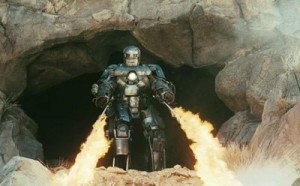
And it’s true, the MCU gets bonus points for having a dedication to remaining true to the original material and bringing out the parts of that material which made them classics. Considering most properties getting adaptations are franchises that have been successful for 40 years or more – that’s not a bad plan. But as time goes on the flaws themselves are going to still show through. RDJ is still just as charming as he has always been, but the more we see of him as Tony Stark the less impressed we are that it works. Familiarity can, eventually, breed contempt. Luckily, while they’re not as universally loved as they once were, the MCU films are still at least strong in their own right so the sharper criticisms aren’t devastating.
But what, exactly, happens to the genre when lesser movies start to bleed into the mix?
Whether you liked the films or not, you have to admit there have been some films introduced to the genre in the last couple years that have put some pretty solid cracks in the foundation. Amazing Spider-man 2 was a deeply flawed film that many people still enjoyed, but it was still received poorly enough that Sony changed its plans going forward in the aftermath. The Dark Knight Rises was still successful in the box offices, but many people have grown to realize it shined lights on the inherent flaws in Nolan’s version of Batman. Batman v Superman will likely make a tremendous amount of money, but there is no questioning the fact the fanbase is heavily divided. And Fantastic Four…?
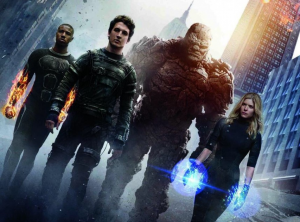
We don’t talk about that one anymore.
There have been many people who’ve brought up the question of whether or not Superhero movies are a true genre or simply a trend. It seems like a question that doesn’t really matter, but the answer would greatly change the future of media. A genre, while it has its rises and falls, always tends to remain in the public awareness. Trends, on the other hand, will burn brightly for about 10 years and then snuff themselves out and never really come back again. Westerns, infamously, burned white hot for a while and gave rise to the likes of John Wayne and Clint Eastwood before suddenly collapsing under their own weight and struggling to ever make a comeback.
However, with the continued success of movies in the genre despite these bombs, it’s hard to know for sure if they’ll cement as a genre after all is said and done. Many film critics and analysts feel that it’s on the horizon, but just as many people in comic book related fields have predicted the same for years. And, while it’s hard to imagine today, the concept of film and TV in the first place were considered flash in the pan to begin with. So, until we start seeing the thing actually collapse, we can’t really be sure what’s to come in ten years. But, unfortunately, I think it’s starting to become clear another group of adaptations is showing signs it’s about to implode – YA adaptations.

There is no question that Twilight was a powerhouse. Despite being panned by book and film critics all around, you could not stop that thing from making billions of dollars as it trampled the competition in its shirtless sparkling glory. And following that we had the phenomenal success of The Hunger Games which taught everyone that an independent female protagonist could be just as successful as whatever the hell Bella was. But others in the genre? Not so much.
Certain adaptations outside of those two have done admirably enough to push forward, but others have experienced hard stumbles that raise questions about the viability of the genre. Despite looking practically unstoppable with The Twilight Saga, the film based on Stephenie Meyer’s next novel, The Host, barely made back its budget and likely didn’t even accomplish that if you account for advertising. Divergent, meanwhile, started with the kind of energy that made it look like the next Hunger Games. But by the third film in the franchise, with reviews giving it a 12% on rotten tomatoes, it has “under performed” according to the studio. You’d think this was just a couple failures, but The Giver, Mortal Instruments, and The Fifth Wave have all “under performed” as well.
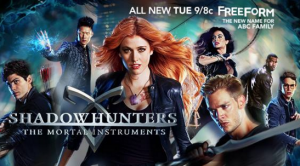
With Hunger Games coming to a close and few rising stars on the horizon, it really looks like the lack of heavy hitters means that this particular trend is about to end. And, frankly, while I’ve never been fond of the YA genre in itself, it did do some things that other genres failed to do before. The YA genre, even Twilight, helped spur Hollywood into producing more movies with female protagonists. Losing the genre, even if you’re not a fan (and, frankly, I’ve never been), could be a major loss for roles like that.
But, how could they have prevented it? Is it even possible? Given the fact that today’s media almost requires being multi-platform to survive, these are important questions to figure out. Sure, someone can make a significant amount of money in film, books, or TV – but generally it’s better to have something to offer in as many markets as you can. George RR Martin was doing just fine with A Song Of Ice And Fire but wasn’t the behemoth of the industry we know until a TV series got his work out in front of an even larger audience. Sure, he probably wasn’t expecting to be so famous that people would bitch that he needed to work faster but it’s not the worst problem to have.
This is where the “fatigue” part really comes into play. When you look at the most recent reviews of the movies that failed, you find that a lot of them refer to the weariness of seeing the same damn thing every time. It’s a problem with certain genres and franchises that, while people love the familiarity, audiences hate feeling like they’ve already seen something before. The YA genre, for reasons I think will be covered next week, tends to hit this problem more than any other, and as a result there’s been a general sense that each film is a “rip off” or “cheap cash in” rather than an independent adaptation of its own.
And, frankly, when the audience can start to predict where your franchise is going because they’ve already seen it elsewhere…
It doesn’t matter how much money you throw into the effects.
(I write novels and soon screenplays…. yes, I am trying to adapt my novels. Here’s hoping I’m not one of those bombs! If I am, you’ll find me crying on Twitter.)


